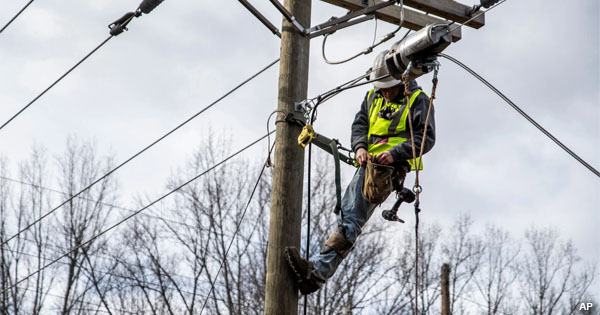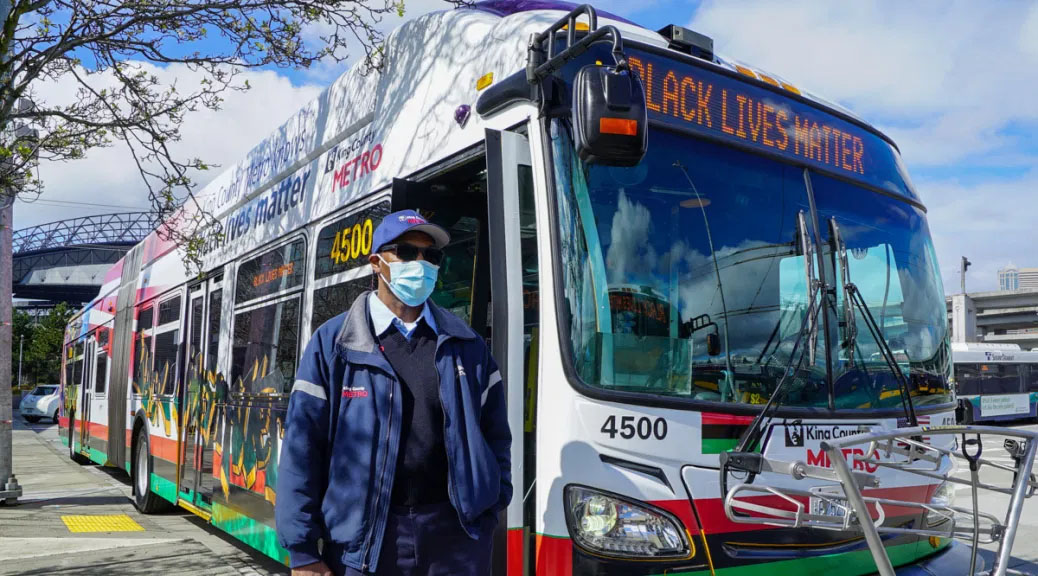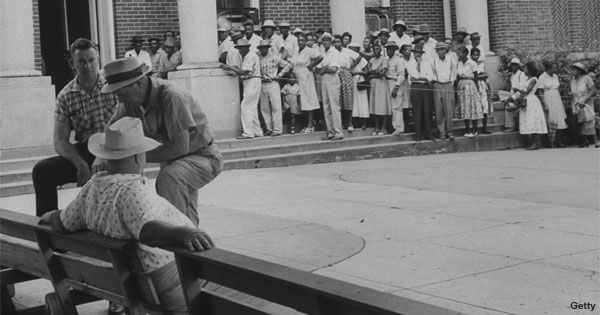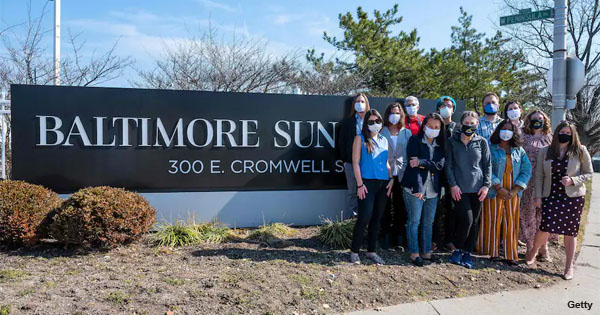NEWS ROUNDUP
A significant surge | In-fruh-struhk-cher | Reporters save newspapers
Tuesday, April 6, 2021
COVID-19
► LIVE from the Seattle Times — Coronavirus daily news update, April 6 — The latest count of COVID-19 cases in Washington totals 370,017 infections (7-day average of new infections per day: 1,004) and 5,285 deaths.
► From the Peninsula Daily News — State seeing ‘significant surge’ of virus variant
► From the (Longview) Daily News — Cowlitz County may revert to Phase 2 of reopening as COVID cases rise — The latest Cowlitz County Department of Health report projects that the county will drop back to Phase 2 of reopening when the counties are re-evaluated, as it reported 70 new COVID-19 cases over the weekend and one death.

► From the Washington Post — Stress on the front lines of COVID-19 — Worry, exhaustion, constantly changing safety rules and long hours of wearing PPE are just a few things America’s health-care workers cite as the hardest parts of going to work on the front lines of the coronavirus pandemic. Their work has saved countless lives but also taken a personal toll: 62 percent say worry or stress related to covid-19 has had a negative effect on their mental health. A 55 percent majority feel “burned out” going to work. Nearly half of all health-care workers say worry or stress has caused them to have trouble sleeping or to sleep too much.
► From The Hill — Biden to announce all U.S. adults will be eligible for vaccine by April 19
EDITOR’S NOTE — Gov. Jay Inslee has already announced that effective April 15, all Washingtonians age 16 and up will be eligible to receive a COVID-19 vaccination.
► From the NY Times — As variants have spread, progress against the virus in U.S. has stalled — United States coronavirus cases have increased again after hitting a low point late last month, and some of the states driving the upward trend have also been hit hardest by variants, according to an analysis of new testing data.
► From Reuters — Global COVID-19 death toll surpasses 3 million amid new infections resurgence
LOCAL
► From the Oregonian — Oregon Institute of Technology faculty union votes to authorize strike — The Oregon Institute of Technology’s faculty union voted this week to authorize a strike. The vote last week comes more than 500 days after negotiations began between the union and school administration. Oregon Tech’s chapter of the American Association of University Professors is seeking salary increases and more clearly defined workload limits, among other requests. If a strike happens, it would be the first-ever faculty strike at an Oregon public university.
YET ANOTHER REASON Why We Need to Pass the PRO Act™ — When workers exercise their legal right to join together in a union, employers shouldn’t be able to stall and delay negotiations on a first contract for a year and a half — and sometimes longer. The PRO Act will fix this.
► From the South Seattle Emerald — King County Metro unveils new BLM bus featuring the work of local artist and Metro employee — Robert L. Horton, an artist and transit operator (and ATU member), created one of the winning pieces. Horton has been a professional artist for over 20 years whose work has been displayed in numerous solo gallery exhibits. His artwork will be featured on two wrapped Metro buses. At 60 feet long, its message will be spread across King County. “Black Lives Matter, to me, is we are expanding our voices more clearly, being more forceful, more resilient, and we’re doing it in a different way,” Horton said.
THIS WASHINGTON

 ► From the Columbia Basin Herald — Subminimum wage bill passes 75-23 — Workers with disabilities would no longer get paid less than the minimum wage if a bill is signed into law during this year’s state legislative session. Rep. Noel Frame (D-Seattle) said during the virtual legislative debate the Legislature is taking a “gigantic step forward towards justice” with the passage of SB 5284, sponsored by Sen. Emily Randall (D-Bremerton), as it would prevent employers from paying below minimum wage to workers with disabilities.
► From the Columbia Basin Herald — Subminimum wage bill passes 75-23 — Workers with disabilities would no longer get paid less than the minimum wage if a bill is signed into law during this year’s state legislative session. Rep. Noel Frame (D-Seattle) said during the virtual legislative debate the Legislature is taking a “gigantic step forward towards justice” with the passage of SB 5284, sponsored by Sen. Emily Randall (D-Bremerton), as it would prevent employers from paying below minimum wage to workers with disabilities.
ALSO TODAY at The Stand:
Worker Protection Act dies in Senate; WSLC says it’ll be back
Nation-leading bill to protect frontline workers heads to Inslee
► From the Washington State Wire — The Working Families Tax Credit is an investment in Washington’s recovery (by
► From the (Longview) Daily News — Businesses, worker advocates at odds over impact of expanded unemployment — Open positions take longer to fill today in Cowlitz County than before the pandemic. Businesses blame increased unemployment benefits, while workforce advocates attribute the issue to the pandemic’s effects on health and families.
► From the(Everett) Herald — Lawmakers move to outlaw fake ballot collection containers — A bill heading to the governor would fine and possibly jail those who set up fraudulent drop boxes. In October, the California Republican Party set up unauthorized drop boxes, noting that that state’s laws didn’t bar an organization from collecting ballots and delivering them to election offices.
AMAZON
► From the Washington Post — NLRB will file complaint against Amazon if it doesn’t settle with fired tech workers — The NLRB notified two women fired by Amazon last year that it will pursue unfair labor practices claims against the company unless it settles. If Amazon doesn’t agree to settle the case, the agency told Emily Cunningham and Maren Costa last week, its Seattle regional office would issue a complaint in the “next few weeks” and a trial date would likely be scheduled four to six months out.
YET ANOTHER REASON Why We Need to Pass the PRO Act™ — When employers break the law, the wheels of justice turn so slowly, and the punishments are so weak, that there is little disincentive to follow the law in the first place. There women were fired a year ago. The PRO Act will fix this.
► From Vox — How Amazon and America’s one-click obsession are warping our workforce — Bill Bodani Jr. spent most of his adult life working at Bethlehem Steel, just outside Baltimore. Around the year 2000, an injury on the job forced him into early retirement in his mid-50s. Not too long after that, Bethlehem Steel went bankrupt and was finally dissolved in 2003. Bodani’s pension was eventually slashed from $3,000 to $1,600 a month. At 69 years old he was forced to take a job as a forklift driver at an Amazon warehouse, located in the same place the old steel mill used to sit, where he was paid roughly $12 an hour, a steep drop from his previous wage of $35 an hour. These are the kinds of stories you encounter in Alec MacGillis’s new book about Amazon called Fulfillment: Winning and Losing in One-Click America. It’s not a book about the inner workings of the company or the peculiarities of its mega-billionaire founder, Jeff Bezos. Instead, it’s a book about what Amazon has done to the country, about the many ways it has transformed our economy and accelerated its most destructive tendencies.
THAT WASHINGTON
► From The Hill — Senate parliamentarian to let Democrats bypass GOP filibuster on two more bills — The Senate parliamentarian ruled that Democrats can use special budgetary rules to avoid a GOP filibuster on two more pieces of legislation, setting the stage for President Biden‘s infrastructure agenda to pass in two packages with simple-majority votes.

Should upgrading the electrical grid and installing high-speed fiber optic cables be considered infrastructure spending? Democrats say “yes.” Republicans say “no.”
► From the NY Times — Biden plan spurs fight over what ‘infrastructure’ really means — Republicans say the White House is tucking liberal social programs into legislation that should be focused on roads and bridges. Administration officials say their approach invests in the future.
► From the NY Times — Embracing the softer side of infrastructure (by Paul Krugman) — It’s true that much of the proposed spending involves intangibles — outlays on research and development, broader support for innovation, and investment in people. So what you need to know is that the case for these intangible investments is every bit as strong as the case for repairing decaying roads and collapsing bridges. Indeed, if anything it’s even stronger. Investments in the future don’t always involve concrete.
► From the Wall Street Journal — Biden’s infrastructure package is designed to boost unions — Many of the new jobs are likely to be union positions, because the plan targets sectors that already have high levels of union participation, said Greg Regan, president of the Transportation Trades Department, a coalition of unions in industries such as aviation and rail transit.
 ► From Politico — The wage gap that threatens Biden’s climate plan — President Joe Biden’s efforts to sell the country’s workers on his climate agenda will face a major hurdle, data obtained by Politico show — a big wage gap between the new green energy jobs and the old fossil fuel ones. These wage disparities threaten to undermine Biden’s promise that the nation can launch a multitrillion-dollar assault on climate change while growing its economy and transitioning workers to well-paying jobs. Biden himself gets that, said Jason Walsh, executive director of the BlueGreen Alliance, an organization of labor unions and environmental groups jointly working on environmental issues. He said Biden understands the value of the labor movement within the transition to a clean energy economy, and highlighted proposals in Biden’s infrastructure plan unveiled last week to beef up clean energy job quality.
► From Politico — The wage gap that threatens Biden’s climate plan — President Joe Biden’s efforts to sell the country’s workers on his climate agenda will face a major hurdle, data obtained by Politico show — a big wage gap between the new green energy jobs and the old fossil fuel ones. These wage disparities threaten to undermine Biden’s promise that the nation can launch a multitrillion-dollar assault on climate change while growing its economy and transitioning workers to well-paying jobs. Biden himself gets that, said Jason Walsh, executive director of the BlueGreen Alliance, an organization of labor unions and environmental groups jointly working on environmental issues. He said Biden understands the value of the labor movement within the transition to a clean energy economy, and highlighted proposals in Biden’s infrastructure plan unveiled last week to beef up clean energy job quality.
► From The Hill — Yellen pushes global minimum corporate tax — Treasury Secretary Janet Yellen on Monday pushed for a global minimum corporate tax rate during her first major speech in her new role, as the Biden administration is seeking to enact an infrastructure plan financed by increasing taxes on corporations. “Together we can use a global minimum tax to make sure the global economy thrives based on a more level playing field in the taxation of multinational corporations, and spurs innovation, growth, and prosperity,” Yellen said.
► From The Hill — Manchin says he won’t support corporate tax hike to 28 percent — Manchin said Monday he would instead support raising the corporate tax rate to 25 percent, a level he identified last month as something he could back.
► From the Washington Post — Republicans ramp up attacks on corporations over Georgia voting law, threaten ‘consequences’ — Senate Minority Leader Mitch McConnell (R-Ky.) on Monday accused corporations of siding with Democrats’ portrayal of the law as the new Jim Crow, which he called an attempt to “mislead and bully the American people.” His statement included a threat of unspecified “serious consequences” if companies continued to stand opposite Republicans on a variety of issues.
► From the NY Times — If it’s not Jim Crow, what is it? (by Jamelle Bouie) — The problem with the “no” argument here is that it mistakes both the nature and the operation of Jim Crow voting laws. There was no statute that said, “Black people cannot vote.” Instead, Southern lawmakers spun a web of restrictions and regulations meant to catch most Blacks (as well as many whites) and keep them out of the electorate. It is true that the “yes” argument of President Biden and other Democrats overstates similarities and greatly understates key differences — chief among them the violence that undergirded the Jim Crow racial order. But the “no” argument of conservatives and Republicans asks us to ignore context and extend good faith to lawmakers who overhauled their state’s election laws because their party lost an election.
NATIONAL
► From the “Really?” Department, the Oregonian reports — Actually, that wasn’t a Nazi flag behind first lady Jill Biden — In this photo, labor leader and civil rights activist Dolores Huerta stands next to first lady Jill Biden as she talks with volunteers at a vaccination site at The Forty Acres, the first headquarters of the United Farm Workers labor union, in Delano, Calif. Stories circulating online incorrectly assert Biden gave a speech with the Nazi flag in the background. The UFW flag, seen in the background, features a black eagle surrounded by a white circle on a red background. It was created in the 1960s by César Chávez’s brother, Richard Chávez, and his cousin, Manuel Chávez. The union’s website includes a quote from Chávez explaining the flag’s design: “A symbol is an important thing. That is why we chose an Aztec eagle. It gives pride… When people see it they know it means dignity.”
► From the AP — United seeks to build its own diverse pipeline of pilots — United Airlines says it will train 5,000 pilots this decade, including taking on applicants with no flying experience, and plans for half of them to be women or people of color. United will borrow an approach used elsewhere, notably at Germany’s Lufthansa, by taking people at the beginning of their flying careers and training them at its own academy, which it bought last year. United will continue to draw pilots from traditional sources such as the military, however. Airline officials said they will begin accepting applicants for United’s flight academy on Tuesday.
INTERNATIONAL
► From the NY Times — Garment workers who lost jobs in pandemic still wait for severance pay — A new report says millions of dollars in wages have been withheld from garment workers around the world by factories contracted by major fashion brands.
TODAY’S MUST-READ
► From the Washington Post — The battle for Tribune: Inside the campaign to find new owners for a legendary group of newspapers — Last year, as a group of Baltimore Sun reporters embarked on a long-shot endeavor to find a new owner that could save their paper from a hedge-fund takeover, a former Maryland politician gave them a piece of advice. Treat this like a political campaign. The worried reporters would need to recruit community allies. Hire a public relations firm to sway public opinion. And most crucially: Figure out how to find rich people who might be persuaded to finance a rescue plan. The Save Our Sun campaign would eventually inspire a national effort to keep nearly a dozen newspapers owned by the same chain from being bought by Alden Global Capital, a hedge fund with a singular reputation for gutting newsrooms. Now, a coalition of wealthy business executives has put together an 11th-hour offer to buy not just the Baltimore Sun but the entire Tribune Publishing chain that a special committee of the Tribune’s board said Monday “would reasonably be expected” to beat out Alden’s offer… Jon Schleuss, president of the national NewsGuild union which funded the Sun’s PR push, said there was no precedent for this national campaign toward local ownership. “Many journalists who have just had enough are taking things into their own hands,” he said.
EDITOR’S NOTE — The Entire Staff of The Stand has a conflict of interest here. Back in the day, we worked at two Tribune Publishing newspapers: The Carrol County (Md.) Times and The (Norfolk) Virginian-Pilot. ;)
The Stand posts links to Washington state and national news of interest every weekday morning by 10 a.m.










